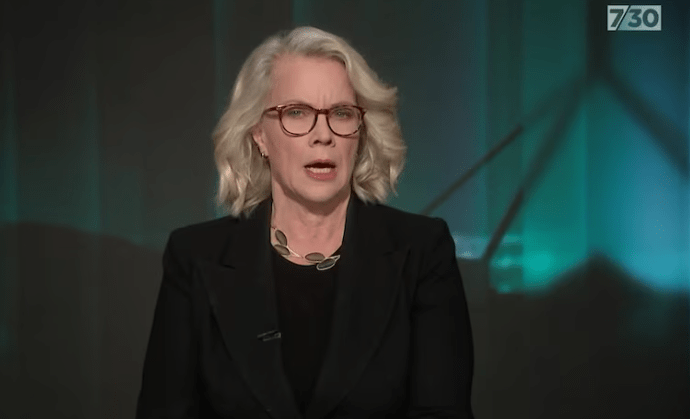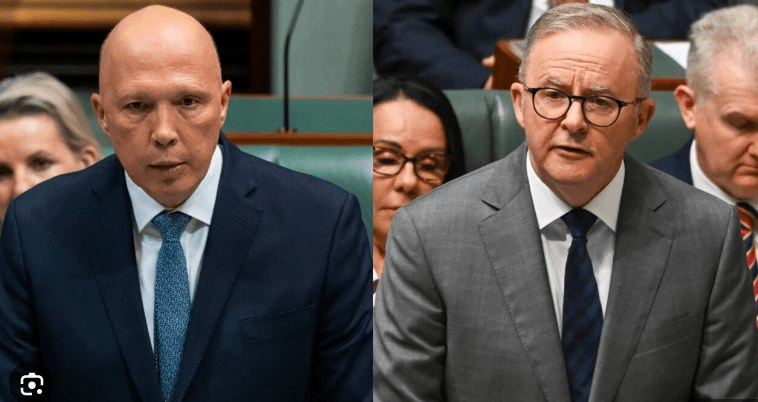In the realm of Australian journalism, few names resonate with as much authority as Laura Tingle. As the Australian Broadcasting Corporation’s (ABC) political editor, her analyses and insights are highly regarded.
However, Tingle recently found herself at the centre of a storm of criticism after making comments that called Australia a racist country.
The right-wing media backlash was swift and severe, prompting Tingle to issue a public statement. This article delves into how the controversy unfolded, the reasons behind the criticism, the key players involved, and how the ABC responded.

How It All Began
The controversy started last month during a panel discussion at the Sydney Writers’, moderated by former Insiders presenter Barrie Cassidy. Tingle, known for her forthrightness and incisive commentary, discussed various societal issues, including racism in Australia.
During the discussion, she made a remark that many perceived as branding Australia a fundamentally racist nation. Her exact words were, “We are a racist country, let’s face it. We always have been, and it’s very depressing.”
Tingle further elaborated on her point, stating that for people who might “look a bit different – whatever you define that as,” the comments by Opposition leader Peter Dutton had “given them licence to be abused … in any circumstance where people feel like they’re missing out.” She also remarked that she could not recall another leader of a major party saying, “everything that is going wrong in this country is because of migrants.”
The Criticism
Tingle’s comments quickly sparked a national debate. Critics, namely News Corp talking heads, argued that her statement was overly generalised and painted all Australians with a broad brush.
Nationals leader David Littleproud criticised the ABC host, accusing her of displaying “complete bias” against the Coalition.
“I think Laura Tingle’s behaviour, not only in the last week or two, has been quite clear that it has been a frontal attack,” he told Sky News Australia.
“The way she dealt with Angus Taylor, and I even remember the way that she dealt with Scott Morrison … showed complete bias.
“I get journalists are able to have their own views and their own beliefs, but when you come to forms like that, you’ve got to show your professionalism and keep professional.”
On social media, the backlash intensified as critics called for accountability. Some critics felt that Tingle’s comments were an unjust “attack”, undermining efforts to foster unity and inclusiveness.
Key Players and Reactions
Several notable figures became embroiled in the controversy. Nationals leader David Littleproud was joined by right-wing commentators such as Sky News Digital Editor Jack Houghton, who accused Tingle of “actively campaigning” against Peter Dutton.
Conversely, Tingle received significant support from key players like Race Discrimination Commissioner Giridharan Sivaraman and via thought-provoking editorials. A Change.org petition was also launched to back her comments, reflecting a public endorsement of her stance.
The ABC’s Response
Amidst the escalating controversy, the ABC found itself under immense pressure. The broadcaster has a mandate to maintain impartiality and balance, and Tingle’s comments were seen by some as a breach of this obligation.
ABC managing director David Anderson addressed the issue during a Senate estimates committee hearing. Responding to a question from Liberal senator and former ABC journalist Sarah Henderson, Anderson said he was “not embarrassed” by Tingle’s comments, but added, “I wish it had not happened.”
Anderson opened his remarks with a prepared statement, noting that ABC news director Justin Stevens had “reminded Laura of her responsibilities to our editorial policies.” He emphasised that as the 7.30 chief political correspondent, “Laura is required to ensure her comments, even at an external event, have sufficient context to support the statements made.”
Tingle herself issued a clarifying statement. She stood by her remarks and condemned the “anti-ABC pile-on”.
“Is it relevant to raise this record of Australian racism in political analysis? Absolutely, if it becomes an issue of controversy in our political contest – as it clearly did when Pauline Hanson appeared on the national stage in 1996 and declared the country was being “swamped with Asians”. John Howard had similarly flirted with the issue of Asian immigration in the 1980s and Julia Gillard did too in 2013 when she used a speech on a visit to western Sydney to announce a clampdown on the issue of temporary skilled worker visas.
In my commentary at the ABC, and at the Sydney Writers’ Festival, I expressed my concern at the risks involved in Peter Dutton pressing the hot button of housing and linking it to migration for these reasons.
Political leaders, by their comments, give licence to others to express opinions they may not otherwise express.
That does not make them racist.
But it has real world implications for many Australians.” – Laura Tingle
Read Tingle’s full statement HERE
The Broader Implications
This incident highlights the complexities of discussing sensitive issues such as racism in a public forum. It highlights the fine line journalists must walk between offering critical commentary and maintaining a perception of impartiality, particularly in a politically charged environment.
The debate also reflects broader societal divisions. On one side, there are those who believe that acknowledging systemic racism is crucial for progress. On the other, there are those who feel such acknowledgements unfairly malign the nation’s character and ignore the efforts made towards inclusivity.
For the ABC, the situation posed a challenge to its role as a public broadcaster. It had to navigate the controversy without appearing to suppress free speech or undermine the journalistic integrity of its staff.

